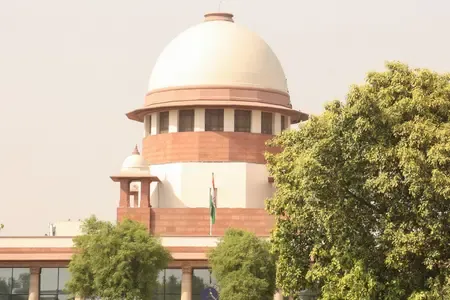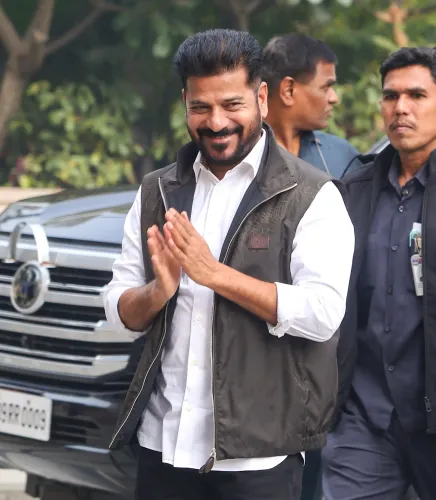Did the SC Uphold Conviction in a POCSO Case?

Synopsis
Key Takeaways
- The Supreme Court upheld the conviction under POCSO.
- Testimony from the child's mother played a crucial role.
- The absence of external injuries was deemed irrelevant.
- The sentence was reduced to 6 years considering time served.
- Victim's emotional state during testimony was highlighted.
New Delhi, Nov 14 (NationPress) The Supreme Court has confirmed the conviction of an individual for the sexual assault of a four-year-old girl under the Protection of Children from Sexual Offences (POCSO) Act.
A bench comprising Justices Aravind Kumar and N.V. Anjaria upheld the findings made by both the trial court and the Chhattisgarh High Court, asserting that the evidence presented “clearly demonstrated the occurrence of the crime” and did not require any interference.
“The evaluation of evidence by the trial court and the subsequent consideration by the High Court were deemed entirely legal and appropriate, thus warranting no intervention from this Court,” noted the Justice Kumar-led Bench.
Additionally, recognizing the duration already spent in prison, the apex court altered the sentence to “rigorous imprisonment for 6 years” instead. According to the prosecution, the victim's mother found the accused, Dinesh Kumar Jaldhari, “in half shorts and positioned near her minor daughter’s legs” inside their residence, where the four-year-old was discovered crying, with her clothes in disarray and expressing discomfort in her private areas.
Reinforcing the decisions of the lower courts, the Justice Kumar-led Bench referred to the accounts given by the parents, stating that “there is no substantial reason to doubt the details provided and the account given by PW-3 – the mother of the victim.”
The Supreme Court also acknowledged the distress shown by the child during her testimony in the trial court, indicating that she became noticeably upset and refused to look at the accused once his mask was removed. “The victim’s frightened reaction upon seeing the accused serves as a significant indicator,” the judgment articulated, emphasizing that the entire sequence was “indicative” of the emotional toll the assault took on the four-year-old.
Rejecting the appellant’s claim that the lack of external injuries weakened the prosecution's case, the Justice Kumar-led Bench reiterated that consistent and credible eyewitness testimony should prevail. The apex court stated, “the medical evidence may not be as crucial and even if it doesn’t align with the eyewitness accounts, the latter must take precedence if consistent and reliable.”
The Supreme Court concluded that the conviction under Sections 9(m) and 10 of the POCSO Act was thoroughly justified. However, considering that the appellant has already served “approximately 4 years and 5 months” in prison, the Justice Kumar-led Bench reduced the sentence from seven years to six while leaving the fine and default sentence intact.










